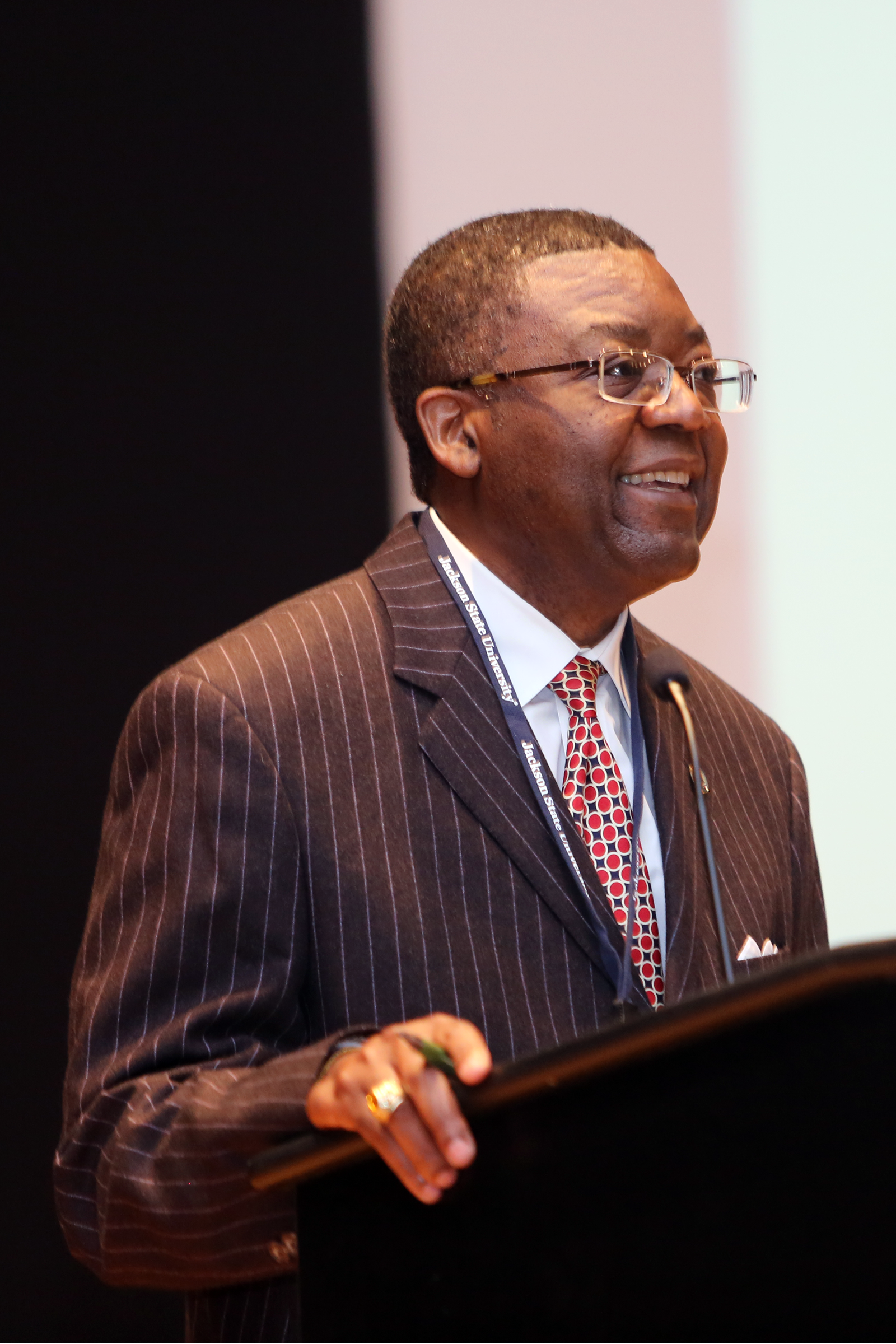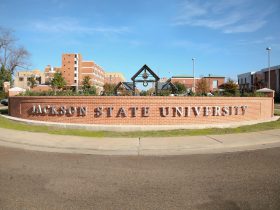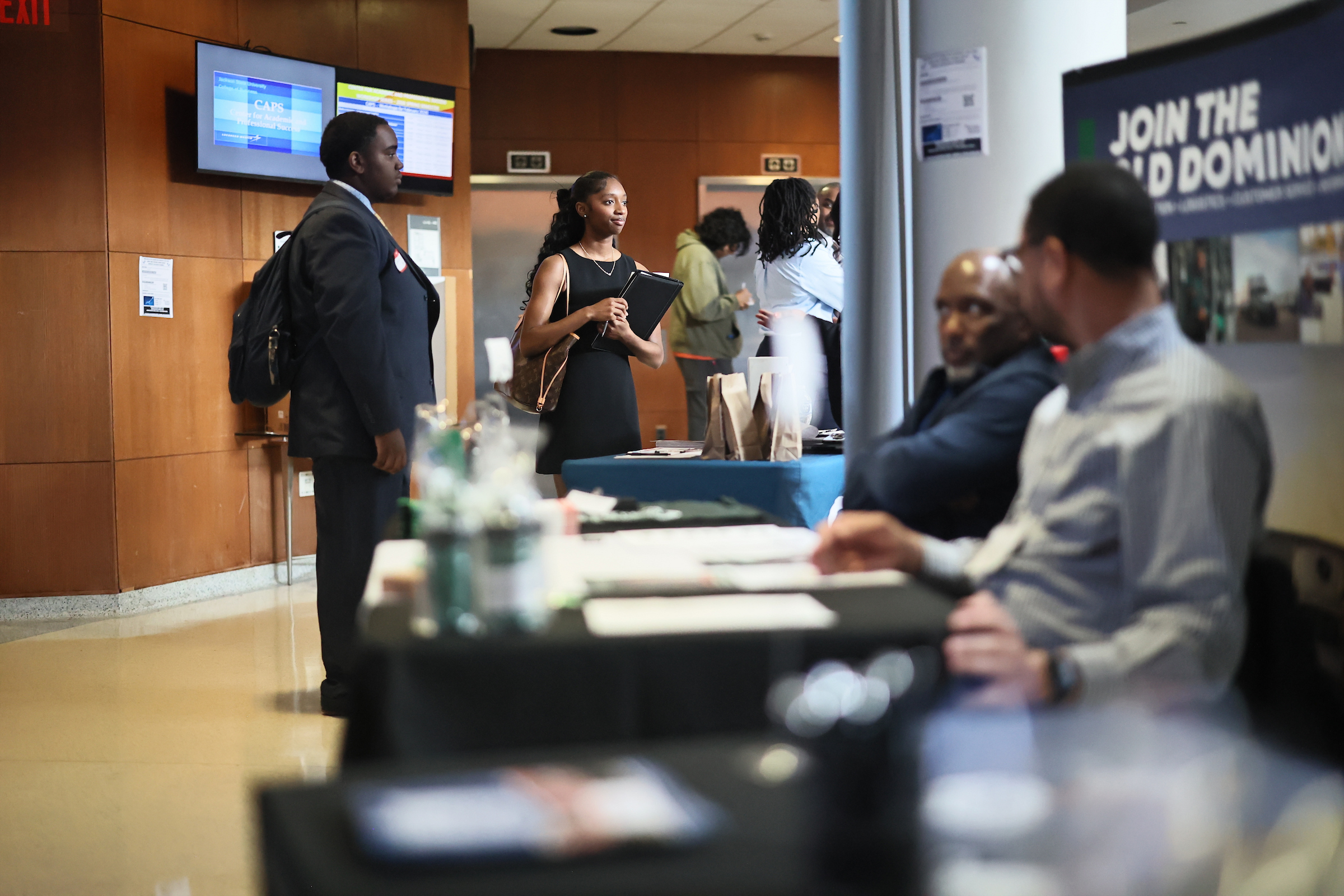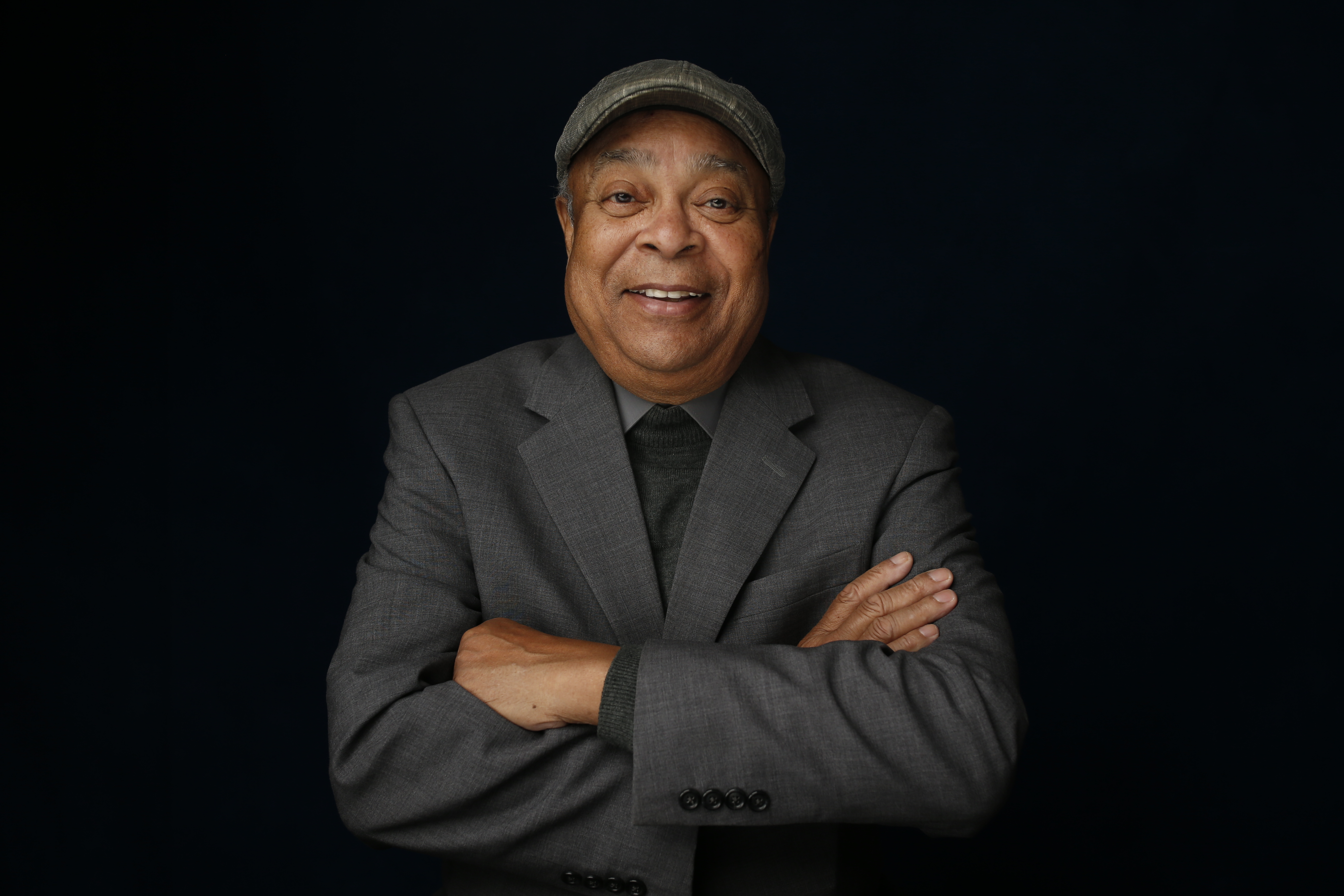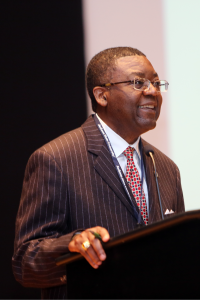
More than 20 countries are represented at the Eleventh International Symposium on Recent Advances in Environmental Health Research and the Thirteenth International Symposium on Metal Ions in Biology and Medicine, hosted by Jackson State University.
The conference opened Sunday and runs until Thursday at the Jackson Convention Complex. During Monday’s opening session, Provost and Senior Vice President James C. Renick officially welcomed conferees.
“We are glad you are here,” Renick said. “I am delighted to see so many students and faculty. I want to welcome our visitors from around the world.”
Renick cited the recent media attention to the Ebola virus in thanking the scientists and researchers for their long-term work.
“The media have a short attention span. It will be on to something else next week. You have been doing this for a very long time, and we thank you for that,” Renick said.
Also bringing greetings were Loretta Moore, vice president for research and federal programs, and Gus McCoy, chief administrative officer for the City of Jackson.
The conference’s overarching objective is the continued promotion of interdisciplinary discussions and international scientific collaborations and to increase awareness of key environmental and public health issues facing the global community, said Paul B. Tchounwou, symposium chair.
Tchounwou, a presidential distinguished professor and associate dean of the College of Science, Engineering and Technology, said the symposium is a major contribution to global research and education in environmental science, biomedicine and public health.
“As in previous years, we are very excited about this international event, and believe that it provides a strong forum to communicate the latest advances in scientific research and new developments on issues related to environmental quality and human health,” Tchounwou said.
The program will consist of several plenary sessions with oral/platform presentations from more than 50 invited speakers. There also will be a poster session for faculty and professional students and another for students. More than 200 abstracts are expected.



